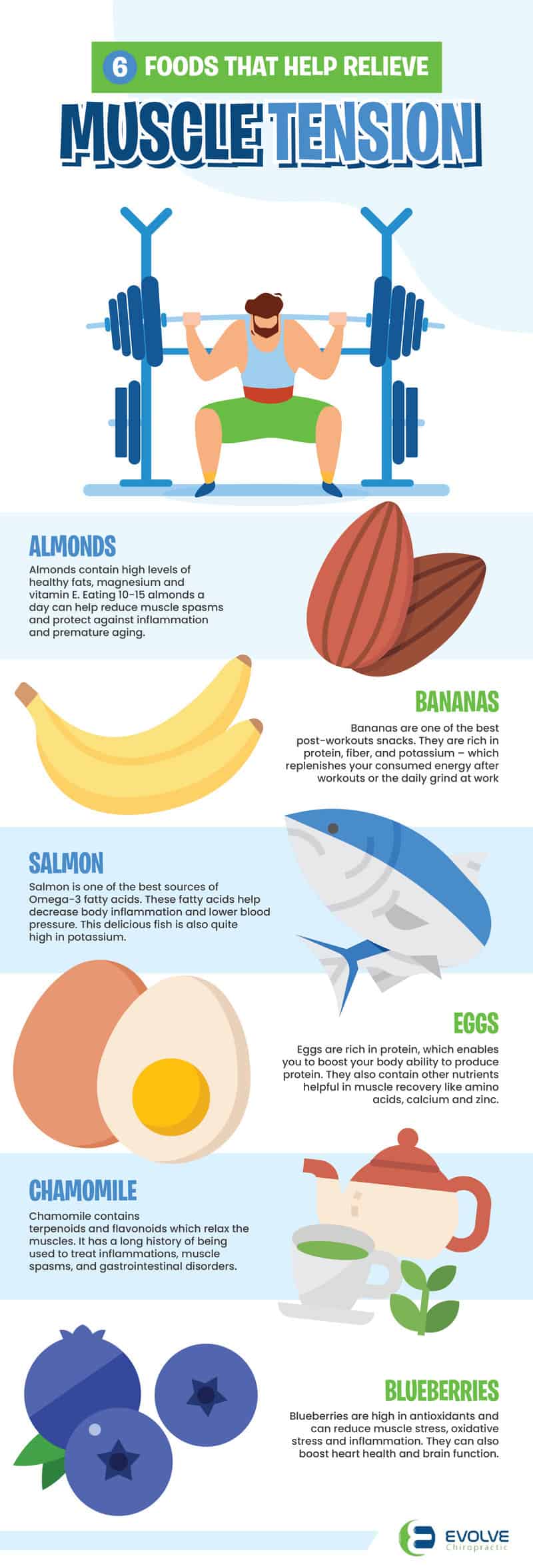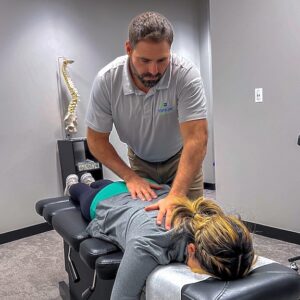Feeling Tense? It Might Be What You're Eating.
You just came home from school, work, or the gym and you still want to do something more with your day. However, there is this one problem: You have sore muscles due to your daily grind, and it leaves you all tired out when you should still have hours of energy left.
This is so common and it’s a shame because it steals away hours and hours of time from people when they could be active, doing things they love. It also makes it harder for people to bring 100% effort to even the normal tasks of the day. Along with diet, several daily habits can quietly make muscle tension worse without you even realizing it.
Common triggers of muscle soreness include:
- Dehydration
- Mineral deficiencies
- Poor posture
- Stress
- Injury
- Overuse
If any of this sounds familiar, keep reading. Because we’re going to look at the ways we can use food and water to create a direct impact on your level of muscle tension. And, we’ll show you how to make a couple simple changes that will start putting more life back in your day.
Share this Image On Your Site
Dehydrated and Lacking Minerals: You’ve Heard It Before and It’s True
Our body is composed of about 90% water. Hence, if we are dehydrated, it affects our body and that eventually results in muscle tension.
Muscle spasms or muscle tension are usually caused by mineral depletion in one’s body.
Three of the most common minerals our muscles lack are potassium, calcium, and magnesium.
These nutrients are essential for both rebuilding muscle tissue and in muscle repair, so it’s important to make sure you’re getting enough.
In addition to those, electrolytes like sodium and chloride play a big part in helping your muscles and nerves work properly. A healthy balance is key. Too little can cause cramping and fatigue, while excessive supplementation without medical guidance can create other health issues.
The food we eat plays an important role in getting an adequate supply and avoiding or remedying muscle tensions so we’ll give you a few suggestions later that will help.
The Pain Pill Option
Some people immediately resort to pain killers or other kinds of medications whenever they have muscle tensions, soreness, or joint pain. It’s understandable. If you’re in pain, you want relief.
Unfortunately, most people don’t realize the long-term effects certain pain medications can have on the body (there’s a list of issues in our ‘Is Chiropractic Safe?’ article). A major detriment is that ongoing reliance may mask the underlying problem. Beyond that, the body was designed to function perfectly for many years. Chronic pain often signals that something in our lifestyle, or a misalignment in the body, needs attention – and many of these issues can be corrected naturally.
Lifestyle changes such as staying active, improving posture, staying hydrated, and incorporating key minerals in your diet are powerful. Natural fixes like chiropractic adjustments, better hydration, stress management, and targeted foods not only relieve tension but tackle the root causes behind it.
Unfortunately, many people believe pills are their only option for tension and muscle pain relief when there are healthier ways forward.

The 8 Incredible Foods That Can Help Relieve Muscle Tension
#1 Almonds
Almonds contain high levels of healthy fats, magnesium, and vitamin E. Research says that eating at least 10-15 almonds a day can help to eliminate the chance of having muscle spasms due to their high levels of antioxidants that protect against inflammation, premature aging, and other diseases.
#2 Blueberries
Treat yourself these incredible little nutrition powerhouses. Blueberries can be used to prevent muscle tension. Studies suggest that blueberries accelerate muscle recovery as they contain high antioxidant power and have been shown to decrease oxidative stress and inflammation.
Other than these benefits, blueberries have also been shown to boost your heart health, brain function, and other numerous advantages.
#3 Bananas
Bananas are one of the best post-workout snacks. They are rich in protein, fiber, and potassium – which replenishes your consumed energy after workouts or the daily grind at work.
Bananas also contain glycogen which is known to help rebuilt damaged muscles. It is said that eating a banana after your daily workout or exercise reduces the chance of having muscle cramps as it relaxes the muscles.

#4 Salmon
Salmon is one of the best sources of Omega-3 fatty acids that help decrease body inflammation, lower blood pressure, and reducing the risk of cancer. It’s also a great source of high-quality protein packed with essential amino acid content that your muscles need to rebuild and recover after intense activity. This delicious fish is also quite high in potassium. In fact, research shows that a piece of salmon fillet has higher potassium content than the same portion of bananas!
Wild caught is generally better (and tastier) than farm raised.
#5 Eggs
Eggs are rich in protein, which enables you to boost your body ability to produce protein (referred to as protein synthesis).
Protein synthesis refers to the process of repairing muscles after a strenuous activity. Eggs are also a good source of other healthy vitamins and minerals which are good in muscle recovery such as amino acids, calcium, and zinc.
(This study showed that whole eggs were more beneficial for Protein Synthesis than egg whites alone.)
Studies show that eating hard-boiled eggs everyday does not only help in repairing muscles but it also in losing weight.
#6 Spinach
Spinach is one of the best leafy greens for promoting muscle relaxation, thanks to its high magnesium and calcium content. One cup of raw spinach provides about 24 mg of magnesium, which is crucial for reducing muscle soreness and supporting muscle protein synthesis after physical activity. Spinach also offers a small boost of vitamin C, another nutrient important for tissue repair and recovery.
Be sure to toss spinach into salads, smoothies, or stir-fries to easily boost your mineral intake and help your body bounce back faster.
#7 Avocados
Avocados are rich in potassium and healthy fats that reduce inflammation and promote muscle recovery. Their natural anti-inflammatory properties make them a great choice for easing muscle ache and supporting recovery after tough workouts. In fact, just 100 grams of avocado deliver about 14% of your daily potassium needs, along with heart-healthy monounsaturated fats.
Avocados also provide a small amount of vitamin D, which plays a supportive role in muscle function and overall recovery. Spread one on toast or blend into a smoothie for a creamy, nutrient-packed snack that helps soothe tired muscles.
#8 And Last But Not Least. . . Chamomile
Chamomile is one of the best medicinal herbs because of its active relaxant compounds.
It contains terpenoids and flavonoids which relax the muscles. It is considered an ancient herbal medicine as it has been used for a very long time to treat inflammations, muscle spasms, menstrual cramps, and gastrointestinal disorders.
So, don’t forget to treat yourself with a hot cup of chamomile tea after dinner!
Muscle Tension Can Be Optional
Muscle tension doesn’t have to be part of your daily life – especially when there are so many delicious ways to help your body recover from it. Choosing foods that help sore muscles – like leafy greens and healthy fats – can make a big difference in how you feel after activity.
Of course, healthy eating alone might not fix everything. To feel your best and reduce the impact of delayed onset muscle soreness, combine these foods with regular chiropractic adjustments, proper hydration, adequate sleep, and an active lifestyle. This full-circle approach supports your muscles, reduces stress, and keeps you moving freely.
Start with small changes, and remember that professional chiropractic evaluations can uncover hidden alignment issues or stress points that may be contributing to persistent tension. You deserve to feel strong, flexible, and energized every day.
Bon Appetit!






